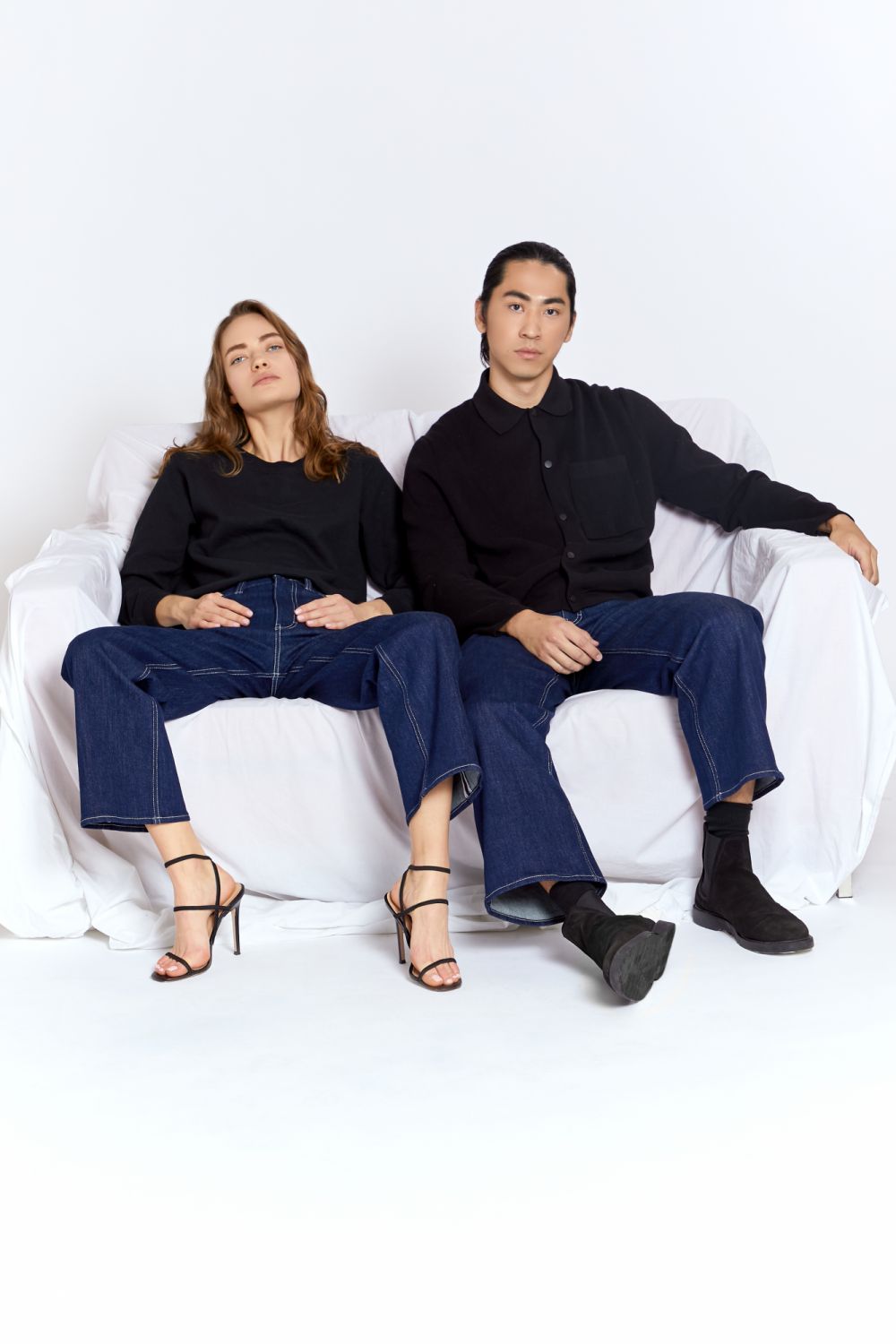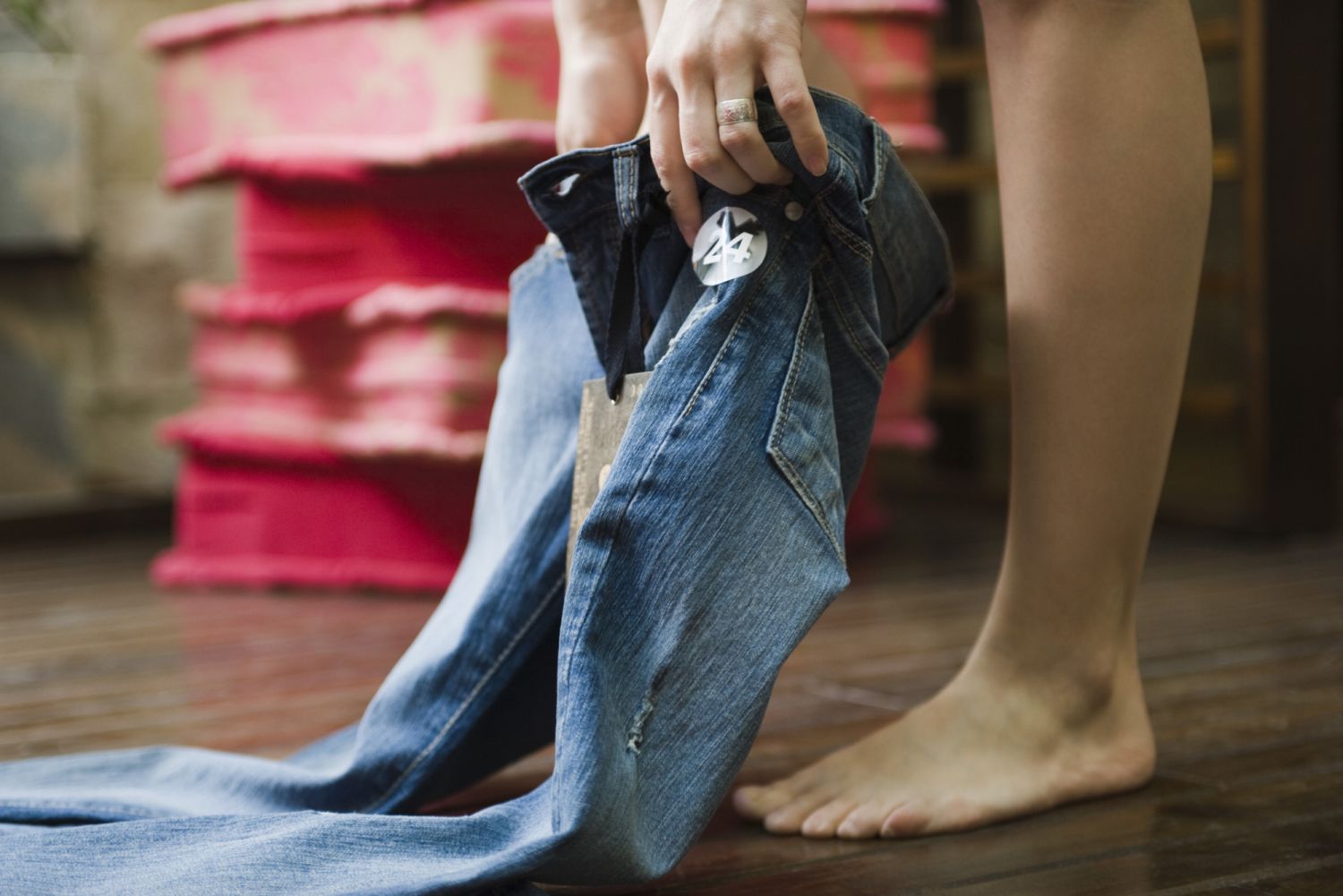Beth Esponette, the co-founder of Unspun, shares how her company's scanning technology stands not only to revolutionise buying jeans, but also make fashion greener
The days of browsing racks of denim and hauling 20 pairs of jeans into a fitting room only to decide that none suit you might become a thing of the past if the body scan technology pioneered by Unspun is anything to go by. The fashion company, founded in 2015 and based in both Hong Kong and San Francisco, uses scanners to take digital measurements of the person’s body using rapid 3D scanning and artificial intelligence, producing a pair of jeans tailored to their measurements. The ten-second scans are completed via an app on the customer's iPhone or with Unspun's machines in its shops—both techniques yield the same degree of fit accuracy.
Read more: Walden Lam Of Unspun Is Using 3D Weaving To Create Sustainable Denim
The process of making denim is water- and energy-intensive, and pollutes the air and waterways around factories with toxic fumes and synthetic dyes if emissions aren’t properly taken care of. However, even with regulation around pollution and well-managed waste, the jean industry is just the indigo-coloured tip of a global garment manufacturing industry where clothes are made and sold as cheaply as possible, before being thrown away after only several wears.
Unspun’s goals are admirable: the company is not only poised to reduce its industry’s emissions by 30 per cent, but global carbon emissions as a whole by one gigatonne by 2050. As a result, the company was named onTime magazine's 100 best inventions list of 2019.
Founder Beth Esponnette, from the US, is a product designer who started in the outdoor gear and apparel industry, and gained attention within the eco-conscious design world in 2016 when she produced an experimental vest made from chia seed shoots in a demonstration of how fashion and nature can mix. Now, Esponnette and her Unspun co-founders Kevin Martin and Walden Lam, stand to revolutionise the fashion industry on a global scale, starting with one of the world’s most commonly worn items of clothing.
Here, she reveals her company’s journey and potential, what it's like running a company between Asia and North America, and who she regards as her mentors.

Why jeans instead of another garment?
Jeans are really the first thing we three founders settled on as a team. We had already started developing 3D-weaving, and denim jeans were a great place to start. We interviewed and surveyed hundreds of people: three-quarters told us they had difficulty finding jeans that fit and made them feel good. Jeans are ubiquitous: everyone wears them, and they have historically been one of the worst offenders within fashion for waste, pollution and greenhouse gas emissions. There are almost no reasons for us to not go after jeans.
What is the difference between self-scanning using a phone and visiting one of Unspun's studios to get scanned? Does one yield better results?
It depends on how much you miss your commute! We have been so happy with both phone scanning and in-person scanning. Phone scanning is generally more convenient because you can scan from basically anywhere you have internet, but you do have to spin around because the sensor is only in one place. In-person scanning is very easy because there are sensors all around and so you don’t even have to spin. If you’re within distance of one of our stores I recommend going in to also see the denim options in person and meet some of our awesome team, but otherwise scanning from home is great.





